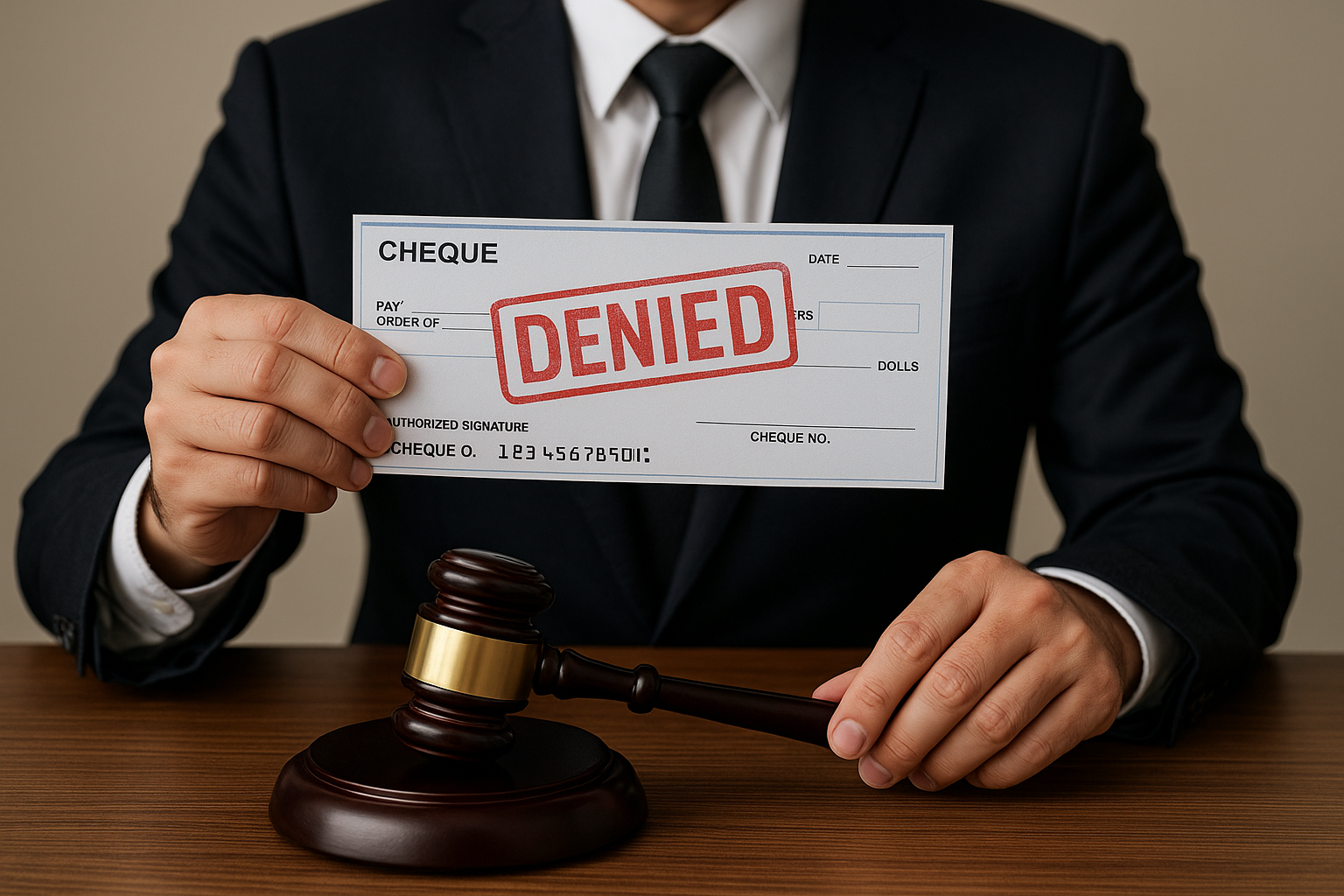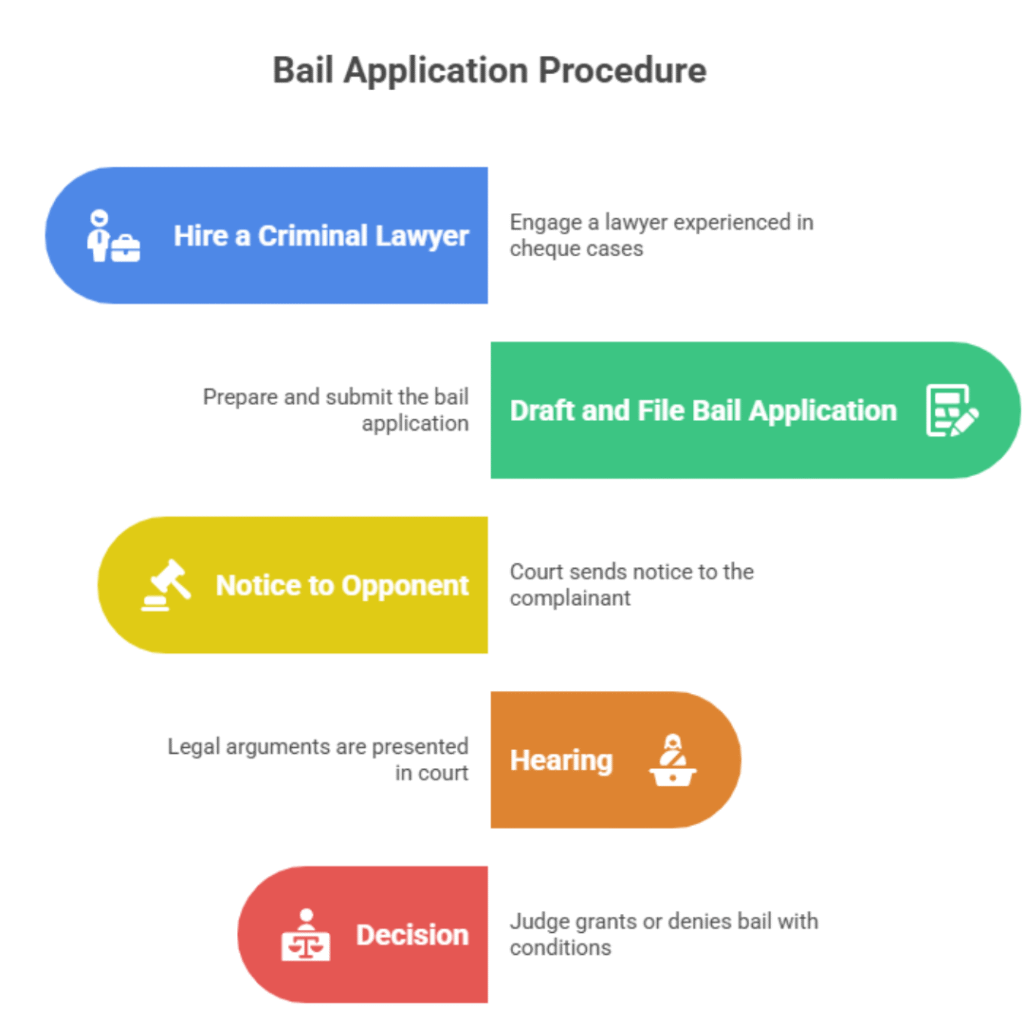Bail in Cheque Bounce Cases / Dishonour Cases in Pakistan

Bail in Cheque Bounce Cases in Pakistan, A cheque bounce or dishonour case in Pakistan can quickly become a stressful legal issue, especially when it leads to criminal charges. Section 489-F of the Pakistan Penal Code (PPC) deals with such offences and includes provisions for possible arrest.
But the good news? Bail is possible, and knowing your rights is key to avoiding unnecessary detention. In this guide, we explain how bail in cheque bounce cases works, the legal process, and how our lawyers at GNS Law Associates can help protect your rights.
What is Section 489-F PPC?
Section 489-F PPC criminalizes the act of issuing a cheque:
- For repayment of a loan or discharge of an obligation,
- That is dishonoured upon presentation.
📌 Punishment:
Imprisonment up to three years, a fine, or both.
Is Bail Allowed in Cheque Bounce Cases?
Yes. Bail is allowed and frequently granted in cheque bounce or dishonour cases. Most 489-F cases are bailable and non-cognizable, meaning police cannot arrest the accused without court permission.
Depending on the situation, the accused may apply for:
- Pre-arrest bail (to avoid arrest)
- Post-arrest bail (after being arrested)
Common Grounds for Granting Bail
Courts often grant bail in cheque bounce cases under these circumstances:
- The accused has no criminal record
- The cheque amount is disputed or part of a civil dispute
- Evidence of dishonest intent is weak
- The accused is willing to repay or settle the dispute
- The cheque was post-dated
Types of Bail in Cheque bounce Cases
1. Pre-Arrest Bail (Anticipatory Bail)
This is filed in Sessions Court to prevent arrest before FIR execution.
Requirements:
Accused must show good faith
No prior convictions
Must cooperate with investigation
2. Post-Arrest Bail
Filed if the accused is already arrested.
Requirements:
Court examines the intent behind cheque
Willingness to resolve the matter legally
Procedure for Bail Application

1. Hire a Criminal Lawyer
An experienced cheque case lawyer is vital for success.
2. Draft and File Bail Application
Mention relevant facts, legal grounds, and evidence.
3. Notice to Opponent
Court issues notice to the complainant for hearing.
4. Hearing
Legal arguments are heard by the judge.
5. Decision
Bail is granted or denied with or without conditions.
Important Legal Insights
Recent case law suggests that:
Courts must distinguish between civil liability and criminal intent.
If the accused can prove no intention to defraud, bail is more likely.
> “Every cheque bounce does not constitute a crime. Malicious intent must be proven.” – Pakistani Court Judgments
Legal Tips for Accused in 489-F PPC Case
- Never ignore court notices or police calls
- Keep a record of all financial dealings
- Apply for anticipatory bail if FIR is lodged
- Explore out-of-court settlements
- Always hire a professional criminal defense lawye
Contact Us Today!
GNS Law Associates provides expert legal support for you, ensuring your interests are fully protected.


No comment yet, add your voice below!